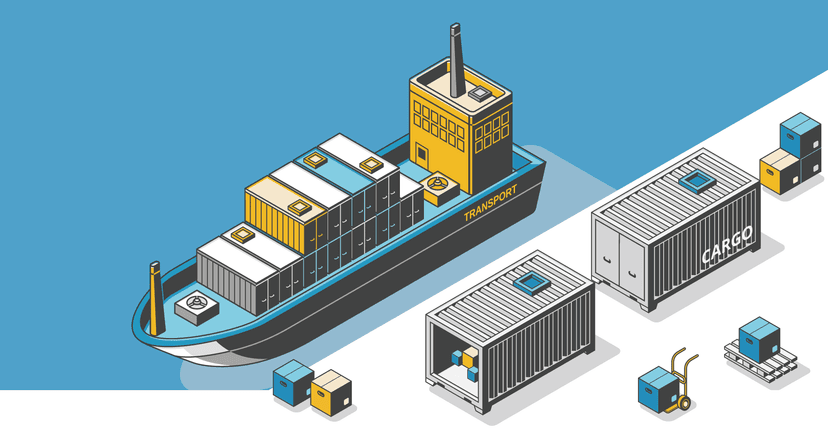
The Ultimate FCL Shipping Handbook: Costs, Benefits, and Best Practices for 2025
FCL shipping (Full Container Load) involves hiring an entire shipping container exclusively for your cargo, offering faster transit times an...
A guide to excelling in exports. Here are 5 common mistakes that exporters make and tips on how to avoid them

One necessary step to grow a business is to expand from the home market, especially in a world where globalisation has taken over, to international markets to such an extent that one finds Brazilian coffee in the cup of someone who is driving a German car somewhere in the United States. These global links are supported by the phenomenon of international trade (export and import).
And, to excel in international trade, it is necessary to have an in-depth understanding of international business and the shipping process. While the business scenario and shipping regulations would differ from country to country, there are some common errors which all exporters must be aware of and try to avoid if they want to build a global business.
Here are 5 common mistakes that exporters make and tips on how to avoid them:
1. Overlooking a Promising Foreign Market: A promising foreign market is - a country that not only has the highest demand for the export product, but also one with a favourable business environment. Knowing which foreign market is commercially viable, is the most basic rule of business. But many exporters, especially those new to the trade, fail to recognize these markets.
In order to avoid this mistake, exporters should try to focus on a few particular ideal markets instead of catering to several countries at once. Streamlined efforts and focus are the keys to achieve success in export business. Exporters should follow a “structured research” approach to identify the best target markets, conduct easy and inexpensive “secondary research” to short list the best markets, and then eliminate those which are expensive, time consuming, or offer the least profit/return. This process will help finalise a set of countries with the most feasible market for the product.
2. Not Localising the Product: Exporters make the mistake of entering new foreign markets without conducting a thorough market research, which may create marketing problems and lead to choosing wrong distribution channels.
Exporters need to understand that foreign customers may not accept their product as-is and delivered exactly like it is all over the world with no customisation. Before launching the product in a foreign market, it is essential to research the local market, understand the customers’ preferences and localise the product to suit the needs of the target market. A well thought-out sales and marketing strategy that takes into consideration the above points will help connect with the buyers in the new market and create a strong foundation for the brand.
3. Neglecting to Conduct a Background Check: A trustworthy business partner with a good reputation is essential for establishing a base in a new market. Often, in the excitement of going global, exporters neglect to conduct basic due diligence or background checks of their international business partner. This negligence can lead to financial, market, and even reputation loss.
To avoid entering into a business agreement with a disreputable company, exporters must themselves carry out a background check or hire an agency to conduct one on their behalf.
4. Failing to Insure Goods: In international logistics, accidents happen. Ships can crash, catch fire, or sink; goods may get stolen or damaged. These incidents and accidents result in financial loss and damage to the product.
Exporters can avoid or at least minimize the loss arising out of transportation by getting an adequate insurance cover for their goods. They can either approach insurance providers themselves or discuss available options with their freight forwarders. Before choosing an insurance policy, it is important for exporters to discuss insurance requirements with the importer, understand the terms of the policies and what they cover, and find out if any special insurance provisions are required for their product.
5.Picking
the Wrong Service Providers: There are many parties involved in
an export process. Some of the important participants are – banks, freight
forwarders, shipping lines, and intermodal transport providers. The successful
completion of an export shipment depends on how all the participants carry out
the process assigned to them.
It is important for an exporter to pick efficient and trustworthy service providers who can cater to his business requirements at a competitive rate and in the least possible amount of time.
If you are having difficulty in finding the right and trustworthy service providers, just sign up with Cogoport.
At Cogoport, you will not only get access to reliable service providers, but also get the best possible rates and customized shipping solutions.